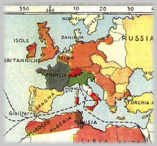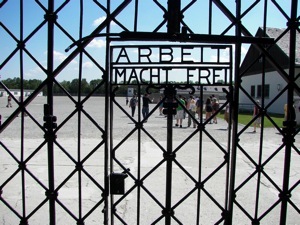
Mark I. Choate: Courses
Brigham Young University
History 307: Europe Since 1914
This course confronts the international affairs and the political, cultural, military, colonial, social, and economic history of Europe from the two world wars until the present day. We will study the crucial forces and events which have shaped Europe and its peoples, and their relationship to the world. What are the historical roots of Europe today? Why don’t Europe and the United States agree more often? In this course, students will practice their writing, analytical, and speaking skills. Some assignments will be on topics of students’ own choosing. This course is a survey of the major themes, events, and revolutions in contemporary Europe. As we investigate Europe’s role in the world, compare Europe to the United States, and compare different regions within Europe, we will also study and apply different methods of historical inquiry. This course is open to majors and non-majors.
History 314: European Fascisms, 1914 to present
We shall investigate the political, cultural, and social bases of fascist movements, especially in Italy, Germany, Spain. In this course we will examine the roots of fascists’ rise to power, family policies, social control, warfare, propaganda, empire, racism, and genocide. What does “fascism” mean? Why were fascist movements so successful, and why did they ultimately fail? We will also discuss and analyze the postwar legacy of antifascists and neofascists in Europe and elsewhere. The subject of this class will also be a forum for studying historiography, or the practice of history itself. In this course we will compare different methodological approaches; students will thus participate in a practical application of historical theories. This course is open to majors and non-majors.
History 327: Italy in the Modern World since 1848
In this course we shall study the political, social, economic, and cultural history of Italians and the Italian peninsula in Europe and the world. Topics will include nationalism, Liberalism, Church and State relations, migration, colonialism, mafia, disease, geography, social revolution, Fascism, the Cold War, and the European Union. What has been the nature of Italy’s impact in the contemporary world? What does Italian history reveal about the strengths and weaknesses of Europe? In this course we will compare different methodological approaches and will study the debates over Italy’s formation and development. Students will thus participate in a practical application of historical theories by working through the complicated legacy of Italian history. This course is open to majors and non-majors.
History 202: World Civilizations since 1500
The history of the modern world is a broad, challenging, and exciting topic, that brings not only a better understanding our fellow humankind, but a better understanding of ourselves. In this course, we shall investigate the international revolutions which have shaped the world of today, particularly the impact and legacy of the following: (1) religious wars and the religious Reformations; (2) imperialism and decolonization; (3) the Enlightenment and Scientific Revolutions; (4) nationalism and the two world wars; and (5) the Industrial and Information Revolutions. To illuminate these periods of rapid change, we shall analyze key primary texts, including poetry, philosophy, art, music, and propaganda, bringing in the different perspectives of political, religious, diplomatic, military, scientific, economic, and cultural history. This course satisfies BYU General Education requirements in Global Awareness and Civilization.
History 663: Topics in Contemporary European History
European history since 1789 is contemporary history, still present in the landscape, monuments, political discourse, and public conversation across Europe today. Through technology, education, colonialism, mass migration, and the world wars, Europe has directly affected every continent. European ideologies of democracy, republicanism, liberalism, conservatism, communism, and fascism have shaped political thought across the world, to this day. European history is in the present consciousness as well as in the past. Likewise, European history has been a traditional focus of historians around the world. This graduate course aims to investigate some key areas and methodologies of the historiography of contemporary history. Students will also write a historiographical essay on a topic of their choice, with my approval.





Photos and text Copyright © 2008 Mark I. Choate. All rights reserved.